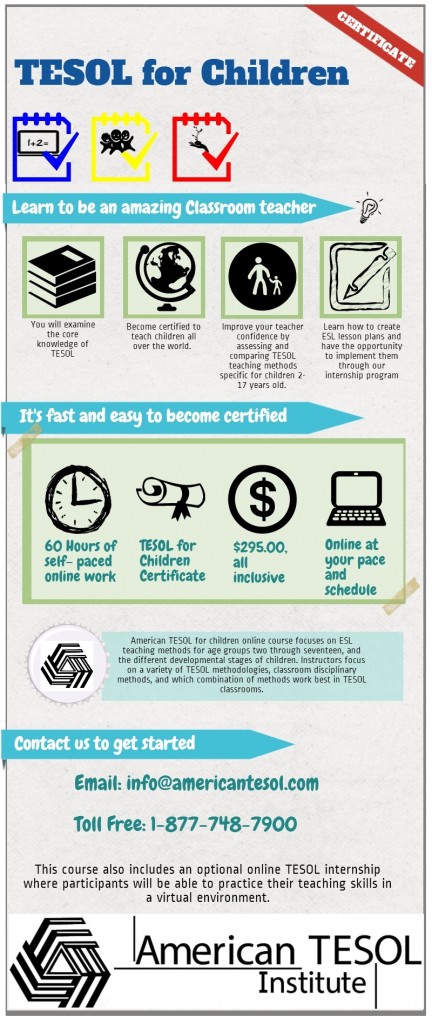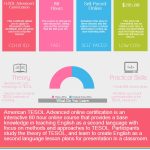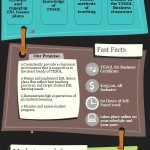Teaching English to children is a rewarding experience that shapes young minds and lays the foundation for their future success. With the TESOL for Children Certification, educators gain the skills, knowledge, and confidence to create engaging, age-appropriate lessons for learners aged 2 to 17. This specialized program is designed to prepare teachers to address the unique needs of children while fostering their love for learning.
What is TESOL for Children Certification?
The TESOL for Children Certification focuses on the developmental stages of children and equips educators with effective teaching strategies for young learners. The course covers:
- Age-Specific Techniques: Tailored methods for teaching toddlers, primary school students, and teenagers.
- Developmental Insights: Understanding cognitive, emotional, and social development in children.
- TESOL Methodologies: A variety of teaching approaches, including storytelling, games, songs, and role-playing.
- Disciplinary Methods: Strategies for managing behavior and creating a positive, productive classroom environment.
Why Teach English to Children?
1. Shape Futures
Teaching children English gives them a valuable skill that will benefit them academically, professionally, and personally.
2. Engage Creativity
Working with young learners allows teachers to use imaginative and interactive methods, making lessons dynamic and enjoyable.
3. Global Demand
English education for children is a growing field, with high demand for qualified TESOL-certified teachers in schools and language institutes worldwide.
What Makes TESOL for Children Certification Unique?
1. Focus on Developmental Stages
The course delves into the specific needs of different age groups:
- Ages 2-5: Building language foundations through play and simple activities.
- Ages 6-12: Developing basic literacy, vocabulary, and conversational skills.
- Ages 13-17: Enhancing critical thinking, grammar, and writing skills.
2. Blended Methodologies
Teachers learn how to combine approaches like Total Physical Response (TPR), the Communicative Approach, and Project-Based Learning to meet the diverse needs of young learners.
3. Behavioral Management
Classroom management techniques help teachers maintain order and create a nurturing environment that encourages participation and learning.
Tips for Teaching English to Children
- Make Learning Fun: Use games, songs, and activities to keep lessons lively and engaging.
- Be Patient: Young learners may take time to grasp concepts. Celebrate small victories to boost their confidence.
- Incorporate Visuals: Flashcards, pictures, and videos make abstract concepts tangible.
- Encourage Interaction: Group activities and role-playing promote social skills and language practice.
- Adapt to Age Levels: Tailor your teaching style and materials to the developmental stage of your students.
Why Earn a TESOL for Children Certification?
The TESOL for Children Certification is ideal for educators who want to:
- Specialize in teaching young learners.
- Stand out in the competitive field of TESOL.
- Develop innovative teaching techniques that cater to children’s unique learning styles.
This certification not only enhances your teaching abilities but also opens doors to opportunities in schools, summer programs, and international teaching roles.
Start Your Journey Today
Teaching children is more than a job—it’s an opportunity to make a lasting impact on their lives. With the TESOL for Children Certification, you’ll be equipped to inspire, educate, and empower young learners across the globe.
Enroll today and take the first step toward a fulfilling career in English language education for children.



